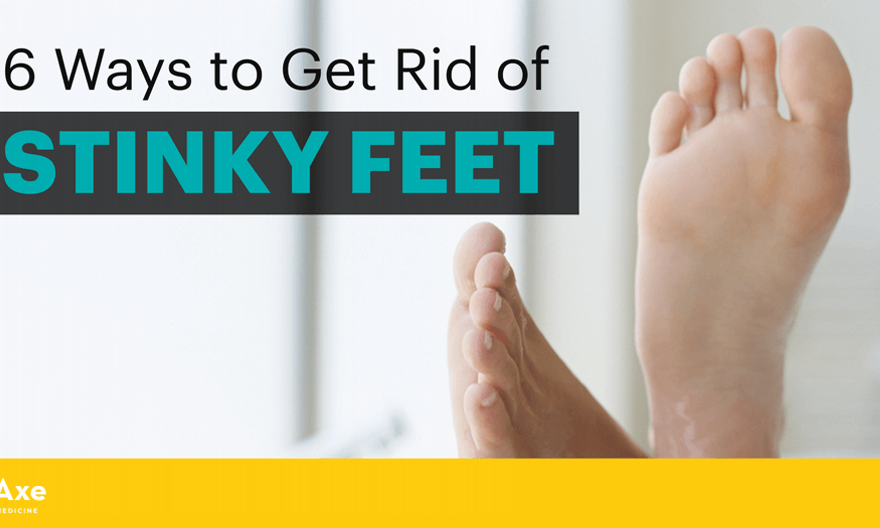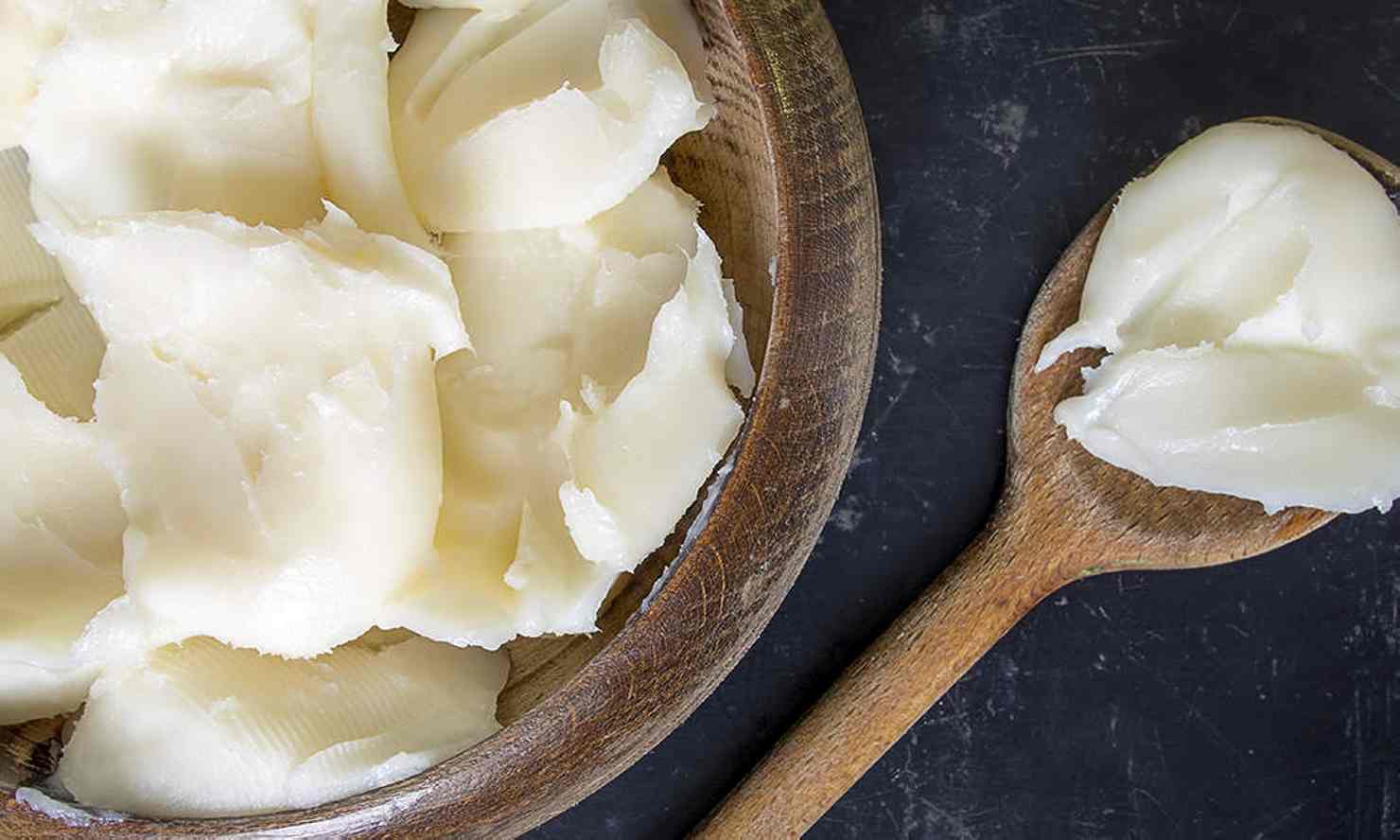
No one wants to deal with the embarrassment of stinky feet. For anyone troubled by stinky feet, the question arises at some point: What exactly is causing my feet to smell?
While most of us have suffered from foot perspiration, damp feet and odor at some point in our lives, for many, sweaty, stinky feet can be a relentless problem that causes much discomfort. Sadly, it can affect the daily lives of many, causing little social life, especially if it’s related to being at a gym, outdoors in the heat of summer or in a situation where shoes need to be removed, such as crowded airports.
A study conducted at the Skin and Care Foundation in Australia reported that sweaty feet commonly comes with an offensive odor or stinky feet, known as bromhidrosis. The condition usually begins in childhood or adolescence and can have a negative impact on education, career choices and social development. (1)
However, for those who have the problem of stinky feet, the good news is that with a daily hygiene routine, you can eliminate stinky feet and rid yourself of the embarrassment that it may cause.
6 Ways to Get Rid of Stinky Feet
Most often, excessive sweating of the feet is diagnosed based on symptoms and a physical exam of the feet. A podiatrist may perform a starch-iodine test to confirm the diagnosis by applying an iodine solution to the bottom of the feet. Once the solution has dried, cornstarch is sprinkled over the area. Typically, the treated area turns dark blue if excessive sweat is present.Ad
However, here are some things you can do right at home that may correct the problem and bring you much relief.
1. Ensure Good Hygiene
Getting rid of foot odor may be as simple as following a daily foot hygiene routine. This may include washing your feet with an antibacterial soap. (2)
It’s important to wash your feet every day and dry them thoroughly, especially between the toes. When you dry your feet with a towel after a shower or bath, dab between your toes with cotton wool dipped in witch hazel or apple cider vinegar. Sweaty feet can be treated with an antibacterial foot scrub, but avoid using a scrubs if you have broken skin or eczema.
Keep your toenails trimmed and clean, which also helps prevent toenail fungus. Gently remove any hard skin with a foot file. When hard, skin can become soggy from the dampness, which provides an ideal home for bacteria.
2. Use a DIY Foot Powder or Foot Scrub
Once you have cleaned your feet and dried them, you can apply powders, such as baking soda, cornstarch or arrowroot powder because they can absorb extra moisture. Antifungal foot powders are great and can be made right at home with just a few ingredients. In fact, you can try my Homemade Antifungal Powder for Stinky Feet + Toenail Fungus.
You can even add essential oils, like tea tree oil, which is antifungal. (3)
3. Soak Your Feet
You can try numerous home remedies, such as salt baths, tea soaks and apple cider vinegar. With proper hygiene and the rotation of shoes, these practices may help eliminate foot odor.
For temporary relief, consider an apple cider vinegar bath using one part vinegar and two parts water to help reduce the level of bacteria that can cause odor. Apple cider vinegar’s antifungal effects can combat foot odor. (4)
In addition, tea soaks are one of the most effective home remedies. Simply use four or five tea bags to a quart of water. You can use regular tea bags or even mint tea bags! Make the tea as you normally would, then allow it to cool and soak the feet for about 20 minutes each day. (5)
Yet another option is a salt wash. To do this, pour a half cup kosher salt or a quarter cup of Epsom salt into four cups water and soak for 10–15 minutes. Salt baths are shown to improve skin health and kill fungi, which is why it can help prevent skin disease and, yes, odor. (6)
In all cases, make sure to dry your feet thoroughly.
4. Rotate Your Shoes
Not wearing the same footwear every day can really help avoid shoe odor in addition to the stinky feet. Rotate two or three pairs of shoes so you can give them a chance to dry out before wearing them again. This can help prevent pitted keratolysis, “a skin disorder characterized by crateriform pitting that primarily affects the pressure-bearing aspects of the plantar surface of the feet and, occasionally, the palms of the hand as collarettes of scale.” (7)
Consider well-fitting shoes made of leather, which can allow your feet to breathe and typically do not soak up as much sweat as cloth shoes. Wear open-toed sandals or flip flops when possible as well.Ad
Go barefoot at home so air can allow your feet to breathe. Detachable insoles can help too. Just make sure to remove them as frequently as possible allowing them to dry.
5. Wear Socks and Change Them Frequently
Wearing socks is also considered essential, especially those that absorb moisture like wool, cotton or a wool/cotton mixture. Cotton or wool socks are much better than nylon. Some sports socks have ventilating holes to help keep feet dry. (8)
6. Change Your Diet
Dr. Robert A. Kornfeld, founder of the Institute for Integrative Podiatric Medicine, tell us that “for those patients who are willing to be more proactive, changes in lifestyle and diet can be very helpful in controlling foot odor. Diets high in refined carbohydrates will often serve as food for bacteria and fungus in the body, giving rise to discharge phenomenon. One such discharge is to expel these bacteria and fungus into the skin to slough off with dying skin cells.” (9)
Dr. Kronfield explains that when this bacteria collects in the skin of the foot through perspiration and is then enclosed in a shoe, the odor can become extreme. But there are many things that can be done through our diet to reduce inflammation such as eliminating refined carbohydrates and balancing protein, healthy fats and complex carbohydrates by eating anti-inflammatory foods. Reducing alcohol consumption and cigarette smoking will also go a long way to relieve the perspiration and odor of stinky feet.
What Causes Stinky Feet?
Sweaty feet, known as palmoplantar hyperhidrosis, means excessive sweating and usually causes stinky feet. The sweat glands in the foot area of the body are what produces the odor.
Because the foot has around 250,000 sweat glands, feet tend to sweat more than other parts of the body. These sweat glands have a purpose, however. The reason for all these sweat glands is to keep the skin moist, acting as a thermostat, in a sense, to help regulate the body temperature.
When it’s hot outside or perhaps you get extremely warm when exercising, the thermostat kicks in to make sure your body temperature stays in check. To do this, the glands secrete sweat, but it’s a bit different than other parts of the body in that the glands constantly secrete sweat that’s usually unnoticeable.
Sweaty feet typically happen on both feet verses one or the other. The exact cause has not been fully discovered ,but overactive sweat glands and genetics seem to play a role.
Smelly feet happen when bacteria on the skin breaks down the sweat as it comes from the pores, and usually a cheesy smell is released as the sweat decomposes. Other causes can be related to daily stress, an injury due to some structural issue in the foot area, standing on your feet all day, wearing the same shoes daily without allowing them to dry, poor personal hygiene, hormonal changes in the body — in particular in teens and pregnant women — and, of course, athletes who may experience fungal infections, such as athlete’s foot.
Even though the problem seems to be more prominent in the hotter months, it can happen anytime of the year. But hot weather can make matters worse, even causing broken skin and blisters.
According to the American Podiatric Medical Association, the most obvious symptom of smelly feet is feet that sweat excessively. Some people sweat so much that their feet may slip around inside their shoes. The feet may also have a whitish, wet appearance, and foot infections may be present because the constant wetness breaks down the skin, allowing infection to develop.
This bacteria and excessive sweat create the foot odor. Those suffering from hyperhidrosis may also experience emotional stress and worry regarding the foot odor, making it even worse. Sweat-related anxiety and isolation can be particularly severe among teens with plantar hyperhidrosis. (11)
When Should I See a Doctor or Podiatrist About Stinky Feet?
Smelly feet are typically harmless but can be a sign of a medical condition, especially if someone already has an autoimmune condition. Regardless given the embarrassment and discomfort, it’s important to address, especially if you have a cut or wound of the skin or between the toes and any increased redness or swelling. A severe bacterial infection of the skin or soft tissue usually produces a terrible odor and could worsen if not treated.
If you experience any foot care issues that don’t resolve themselves naturally or through routine foot care within three or four weeks, you may want to seek the help of a health care professional or a private podiatrist. In some cases, foot odor can be so foul or persistent that a visit to the doctor is necessary.
If none of the home remedies work, see a podiatrist or dermatologist so he or she can perform tests to determine an underlying cause for the excessive sweating. If you’re diabetic, you should address any foot odor as soon as you notice it. It could be a sign of a more serious problem and can progress quickly. (12)
Takeaways
- Sweaty feet commonly comes with an offensive odor or stinky feet, known as bromhidrosis. The condition usually begins in childhood or adolescence and can have a negative impact on education, career choices and social development, in addition to being embarrassing.
- Home remedies and prevention methods for stinky feet include practicing good hygiene, using foot powder or a foot scrub, soaking your feet, rotating shoes, wearing and changing socks frequently, and changing your diet.
- Smelly feet happen when bacteria on the skin breaks down the sweat as it comes from the pores, and usually a cheesy smell is released as the sweat decomposes. Other causes can be related to daily stress, an injury due to some structural issue in the foot area, standing on your feet all day, wearing the same shoes daily without allowing them to dry, poor personal hygiene, hormonal changes in the body — in particular in teens and pregnant women — and, of course, athletes who may experience fungal infections.





